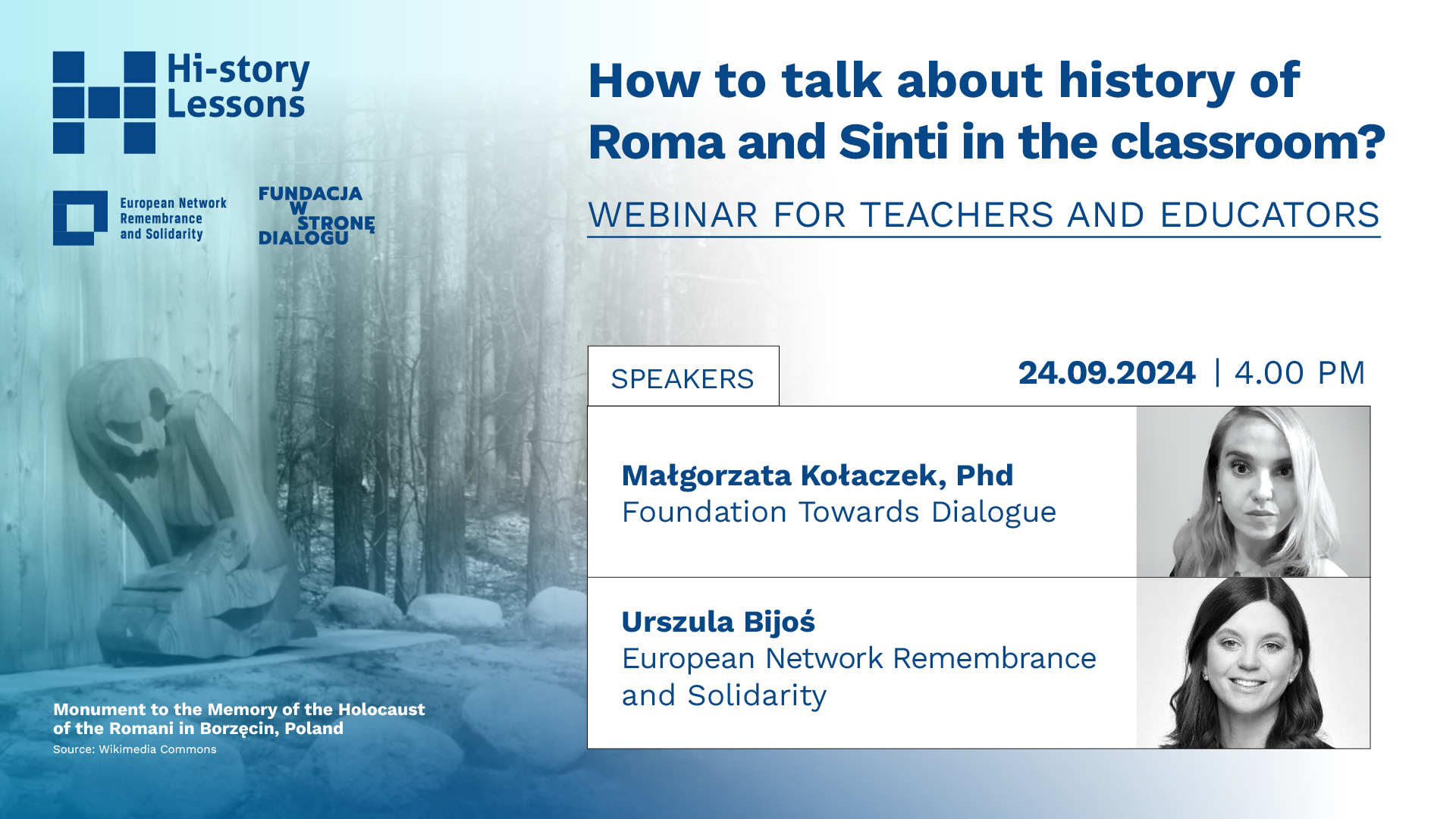We invite you to participate in a thought-provoking webinar that delves into the often overlooked history of the Roma and Sinti communities in the 20th century. The webinar will take place on 24 September 2024, at 4 pm CEST on Zoom.
The session will address the ongoing discrimination these communities face while offering innovative teaching resources designed to illuminate their experiences. A key highlight will be a presentation by Małgorzata Kołaczek, PhD, and the introduction of our latest educational tool, the ‘Marginalised Histories’ mind map, created to enhance the teaching of Roma and Sinti history in classrooms.
What to expect:
This webinar sheds light on the persecution of Roma and Sinti during WWII and examines contemporary forms of discrimination that persist today. By exploring these histories, we aim to foster deeper understanding and awareness of the challenges marginalized groups face.
Participants will:
• Explore examples of discrimination against Roma and Sinti across European countries.
• Study the biographies of Roma individuals who became victims of persecution.
• Understand the historical context leading to the Roma genocide carried out by Nazi Germany.
• Reflect on the current realities faced by Roma and Sinti communities and develop sensitivity to signs of discrimination.
Why attend?
This webinar presents a valuable opportunity to learn, reflect, and engage with critical issues surrounding historical and modern marginalization. It will include case studies on various forms of discrimination—lack of access to education, exclusion from public life, negative media portrayals, and more—using a variety of sources, such as photos, press clippings, and historical documents.
Key reasons to participate:
• Unrecognized Victims: Roma and Sinti are often left out of Holocaust narratives, despite the fact that Nazi Germany and its allies murdered at least 250,000 Roma and Sinti across Europe.
• Modern Relevance: Discrimination against the Roma continues to be widespread in many parts of Europe today. Understanding their history is crucial to fostering greater awareness and inclusion.
• Genocide Awareness: Learning about the persecution Roma faced helps recognize the warning signs of genocide, in accordance with the 10 stages of genocide model.
• Combating Historical Marginalization: The Nazis built upon pre-existing prejudices against Roma, which were escalated to extreme violence. Understanding this history is key to addressing present-day discrimination.
Our Speaker: Małgorzata Kołaczek, PhD, is an Assistant Professor at the Institute of Intercultural Studies at the Jagiellonian University and Vice-President of the Foundation Towards Dialogue. Her research focuses on the Roma community in Central and Eastern Europe, and she has been a visiting professor and lecturer at various institutions worldwide. She is an anti-discrimination trainer and an expert in Roma history and ethnic studies.
Our Contributors: We are honored to collaborate with renowned scholars and institutions across Europe, including Dr. Petre Matei, Dr. Tamás Hajnáczky, Helena Link, Roksana Mroczek-Wajs, Patrycja Mroczek-Wajs, and many others. Their expertise will contribute to an enriching and insightful experience.
Register HERE.
Read more about the Hi-Story Lessons educational platform
